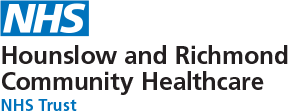What is safeguarding for adults?
Adult safeguarding is working in partnership with our patients and those who use our services, including their families and carers, to achieve greater health and wellbeing.
We need to ensure that adults at risk due to health needs, social care needs or disabilities are able to live in their community free of abuse or neglect.
This is a shared responsibility – everyone in our community has a responsibility to report suspected abuse of an adult.
The key principles of Adult Safeguarding are:
-
Empowerment – person-led decisions and informed consent.
-
Prevention – it is better to take action before harm occurs.
-
Proportionality – the least intrusive response appropriate to the risk presented.
-
Protection – support and representation for those in greatest need.
-
Partnership –local solutions through services working with their communities. Communities have a part to play in preventing, detecting and reporting neglect and abuse.
-
Accountability – transparency in delivering safeguarding.
Who is an adult at risk?
Any adult (aged 18 or over) who:
- has care and support needs (these include health needs) and
- is experiencing, or is at risk of, abuse or neglect and
- is unable to protect themselves because of their care and support needs.
Local authorities have safeguarding responsibilities for carers and a general duty to promote the wellbeing of the wider population in the communities they serve. Safeguarding duties apply regardless of whether a person’s care and support needs are being met, whether by the local authority or anyone else. They also apply to people who pay for their own care and support services.
Local authorities have safeguarding responsibilities for carers and a general duty to promote the wellbeing of the wider population in the communities they serve. Safeguarding duties apply regardless of whether a person’s care and support needs are being met, whether by the local authority or anyone else. They also apply to people who pay for their own care and support services.
What is abuse of an adult?
Abuse of an adult includes:
-
Physical abuse – including hitting, slapping, pushing, misuse of medication, restraint or inappropriate physical sanctions;
-
Sexual abuse – including rape and sexual assault or sexual acts to which the adult has not consented or was pressured into consenting;
-
Psychological abuse – including emotional abuse, threats of harm or abandonment, deprivation of contact, humiliation, blaming, controlling, intimidation, coercion, harassment, verbal abuse, isolation or unreasonable and unjustified withdrawal of services or supportive networks;
-
Exploitation – either opportunistically or premeditated, unfairly manipulating someone for profit or personal gain;
-
Financial or material abuse – including theft, fraud, exploitation, coercion in relation to an adult’s financial affairs or arrangements, including in connection with wills, property , inheritance or financial transactions, or the misuse or misappropriation of property, possessions or benefits;
-
Neglect and acts of omission – including ignoring medical or physical care needs, failure to provide access to appropriate health, care and support or educational services, the withholding of the necessities of life, such as medication, adequate nutrition and heating;
-
Discriminatory abuse – including discrimination on grounds of race, gender and gender identity , disability, sexual orientation, religion, and other forms of harassment, slurs or similar treatment;
-
Organisational abuse – including neglect and poor care practice within an institution or specific care setting like a hospital or care home, for example. This may range from isolated incidents to continuing ill-treatment.
-
Radicalisation– exposing an adult to extremist ideas which could lead to terrorism (see Prevent below)
Adult abuse now also includes:
-
Disability and other Hate Crime
-
Domestic Abuse including Forced Marriage, other ‘honour based violence’ and controlling or coercive behaviour in an intimate or family relationship
-
Female Genital Mutilation
-
Human Trafficking
-
Mate Crime – exploitation of a vulnerable adult by a befriender
-
Modern Slavery- slavery, servitude or forced labour
-
Restraint – unlawful or inappropriate use of restraint or physical interventions
Hounslow and Richmond Community Healthcare NHS Trust (HRCH) is committed to ensuring that all adults are treated in a safe and humane manner by staff who understand their roles and responsibilities.
We do this by working in active partnership with our local authorities, the London Borough of Hounslow and the London Borough of Richmond upon Thames, who each have a legal duty to safeguard their adult residents at risk under the Care Act 2014.
Reporting a safeguarding adult concern
All local authorities and health organisations in London have adopted the London multi agency adult safeguarding policy and procedures 2 December 2015.
HRCH staff have a duty to report potential or actual adult abuse or neglect to their line manager, their adult safeguarding lead, the local authority or emergency services if necessary. Before they do so, they should speak to the person concerned (or their advocate) if this is possible, to find out their views about the concern.
HRCH staff should always consider the person’s mental capacity when seeking consent to make a safeguarding referral.
Patients, family, carers and advocates of adults at risk have a responsibility to report any potential abuse or neglect of an adult.
You can do this by speaking to a member of HRCH staff, or your GP, you can contact the local authority in person, by telephone, by email (see the links below).

